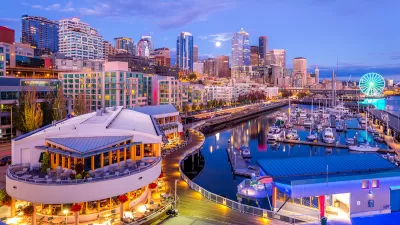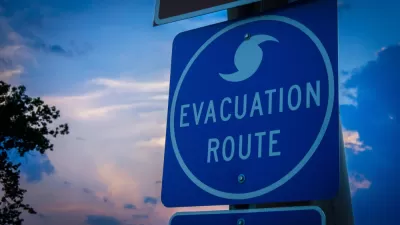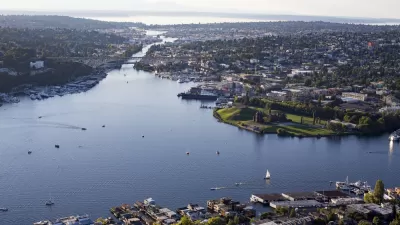In GeekWire, Chuck Wolfe covers an atypical urban planning and policy gathering called an “Urban Resilience Hackathon,” which was held at the University of Washington in Seattle late last month. For a day, the event showcased collaborative problem solving and innovative thinking in addressing urban challenges.

Writing for GeekWire—and as a hackathon participant—Chuck Wolfe explains how the hackathon brought together volunteer organizations, state and local government, students, and researchers to co-develop testable “resilience pilot projects” that could help Seattle be more prepared for future disruptions.
DemocracyLab, a “tech for good” nonprofit, helped facilitate the hackathon, which had support from the National Science Foundation LEAP-HI project, and the UW’s Department of Urban Design and Planning.
The UW hackathon centered on various pitches each addressing a different aspect of urban resilience to be tested against a future earthquake, pandemic, excessive heat event, or massive airline flight grounding. The pitches were also assessed for support of the Seattle Climate Action Plan and Seattle Race and Justice Initiative.
The range of projects presented, from urban system solutions to emergency water storage, speaks to the diverse issues that require further preparation and collaboration.
“Crises don’t allow time to invent responses from scratch,” said Dr. Dan Abramson, one of the event’s organizers from the UW Department of Urban Design and Planning. “Cities need to be adaptable, and the most adaptable cities are those that have a deep reserve of policies and programs they can draw on to keep themselves vital when normal activities are disrupted.”
FULL STORY: Can tech help cities plan for disasters? 7 ideas from an urban resilience hackathon

Planetizen Federal Action Tracker
A weekly monitor of how Trump’s orders and actions are impacting planners and planning in America.

Maui's Vacation Rental Debate Turns Ugly
Verbal attacks, misinformation campaigns and fistfights plague a high-stakes debate to convert thousands of vacation rentals into long-term housing.

Restaurant Patios Were a Pandemic Win — Why Were They so Hard to Keep?
Social distancing requirements and changes in travel patterns prompted cities to pilot new uses for street and sidewalk space. Then it got complicated.

In California Battle of Housing vs. Environment, Housing Just Won
A new state law significantly limits the power of CEQA, an environmental review law that served as a powerful tool for blocking new development.

Boulder Eliminates Parking Minimums Citywide
Officials estimate the cost of building a single underground parking space at up to $100,000.

Orange County, Florida Adopts Largest US “Sprawl Repair” Code
The ‘Orange Code’ seeks to rectify decades of sprawl-inducing, car-oriented development.
Urban Design for Planners 1: Software Tools
This six-course series explores essential urban design concepts using open source software and equips planners with the tools they need to participate fully in the urban design process.
Planning for Universal Design
Learn the tools for implementing Universal Design in planning regulations.
Heyer Gruel & Associates PA
JM Goldson LLC
Custer County Colorado
City of Camden Redevelopment Agency
City of Astoria
Transportation Research & Education Center (TREC) at Portland State University
Jefferson Parish Government
Camden Redevelopment Agency
City of Claremont





























